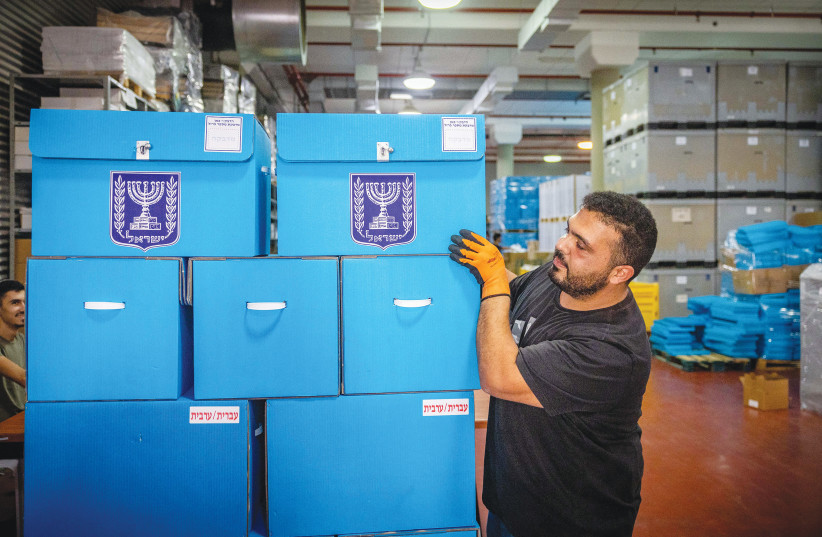Almost 6.8 million Israelis – 6,788,804, to be precise – aged 18 and over are eligible to vote in today’s election for the 25th Knesset, according to the Central Elections Committee (CEC). Although voting in Israel is not mandatory, Election Day is a national holiday when citizens are encouraged to exercise their right to vote.
Most of the more than 12,600 polling stations across the country open at 7 a.m. and close at 10 p.m. – although there are exceptions, so it is worth checking before you vote at your assigned station based on your registered residential address.
It is understandable that after four elections since April 9, 2019, some Israelis are suffering from what political scientists call voter fatigue. The November 1, 2022, election is Israel’s fifth in 43 months. “As a result, Israel has become the parliamentary democracy with the highest election frequency, a circumstance that reflects alarming levels of instability and lack of governability,” the CEC stated on its English website.
Every vote counts
Because it is such a close race between the opposing blocs and its results are so crucial to Israel’s future, it is even more important to vote this time. Every vote counts.

Looking at the big picture, all citizens should understand that it is their democratic right and obligation to vote. Until Israel was established in 1948, Jews did not have such a privilege. As we approach the country’s 75th anniversary, we should not take this right for granted.
Voting is how each and every one of us can have an impact on the State of Israel’s character and trajectory. We must not allow the forces of apathy and indifference to prevail. It’s our responsibility to get to our designated polling station and cast a vote for the party that most represents our values and interests.
Voter turnout is critical
Perhaps the single-most important factor in determining the outcome of this election will be voter turnout. With 39 parties in the race, only a dozen or so are likely to make the 3.25% threshold set in 2014.
Israel has traditionally had a high voter turnout, with an average of 74.5% since the first Knesset election in 1949, and at least two-thirds of eligible voters going to the polls since 2013. Still, the turnout in the March 2, 2020, election reached a high of 71.3% and it dropped to 67.4% in the last election on March 23, 2021.
The country is spending a huge amount of money on this election, which in itself constitutes a good reason to vote. Polling stations across the country are operated by some 60,000 officials, as well as more than 70,000 polling committee members. On October 23, the Knesset Finance Committee approved a budget of NIS 538 million for this election (in addition to the CEC’s current budget of NIS 45m. approved last year), representing an average cost of NIS 79 per voter.
The mechanics of voting are simple. In case you’ve forgotten or you’re a new immigrant or first-time voter, you need to take your ID card to the polling station, stand in line and wait for your turn to vote. After showing your ID to an official, you step behind a voting booth and choose the slip containing the letters of the party you’re voting for (it’s recommended to check which letters represent your choice ahead of time). You then place the slip in the ballot box.
The first indications of the election results are published in exit polls taken by the major television stations at 10 p.m. As dramatic as these usually are, the numbers often change when the actual results are tallied.
Once the full results are published, it is the prerogative of President Isaac Herzog – after receiving recommendations from all elected parties – to offer one party leader the first chance to form a government. If this person fails, the president can assign the task to another party leader.
The ultimate goal is that one of the parties will be able to form a majority coalition of 61 members in the 120-seat Knesset. If this does not happen, the country may face a sixth election, a scenario everyone wants to avoid.
So, as the CEC implores on its website, “Don’t regret not voting! Vote!”
